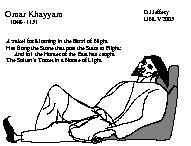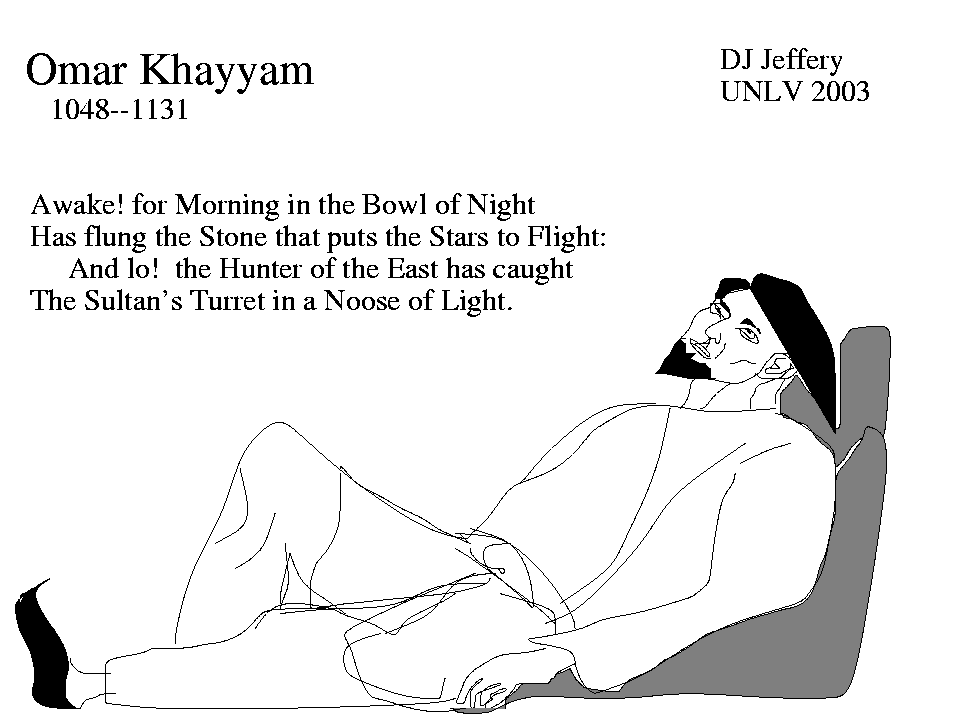 Omar awakening.
Omar awakening.

Born 1048 May 18 in Nishapur, Persia (Iran): Died: 4 Dec 1131 in the same city.
The same birthday as Querida.
Awake! for Morning in the Bowl of Night
Has flung the Stone that puts the Stars to Flight:
And Lo! the Hunter of the East has caught
The Sultan's Turret in a Noose of Light.
The Fitzgerald's Rubaiyat is an elegant enticement, but no one could treat it as a ``complete system.'' It's a pose, but then we enjoy poses---dressing up as a Persian sceptical hedonist---and learn from them too. There is an ancient pagan pessimism---any achievement is beaten down to dust leaving only a vestige behind. The great monotheistic religions promise an afterlife which can be pictured in more-or-less dreary fashion. Science and technology broke the cycle of perpetual fall of civilizations before rust and barbarian slaughter, but do not teach us how to live. I remember the words of Shelley: ``Die, / If thou wouldst be with that which thou dost seek!'' His point being that we are searchers: to pretend that one has found is to go to rust.